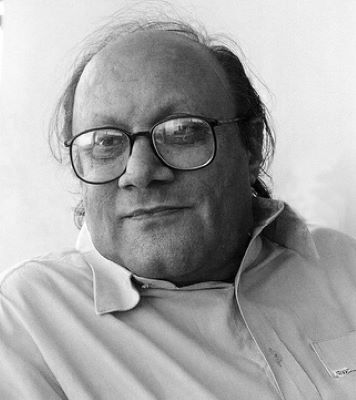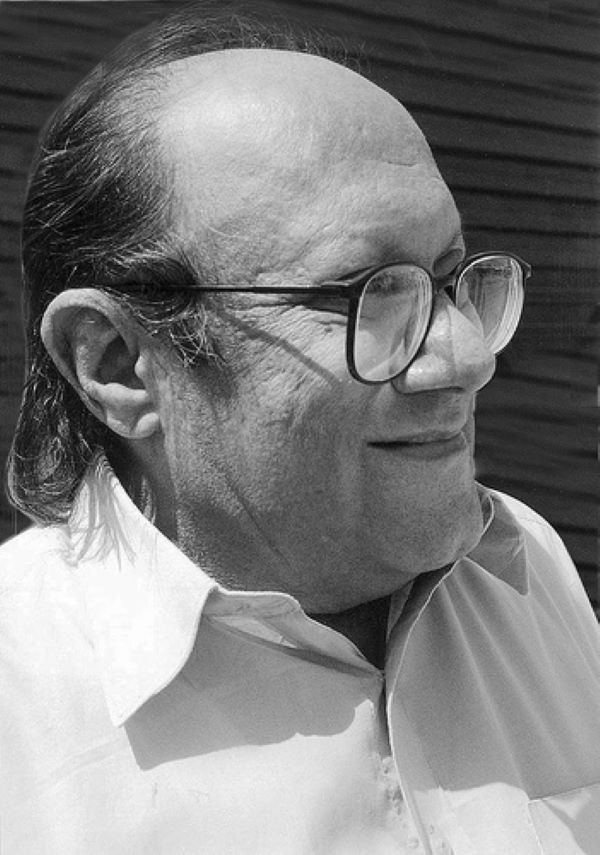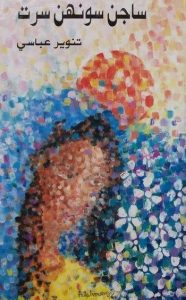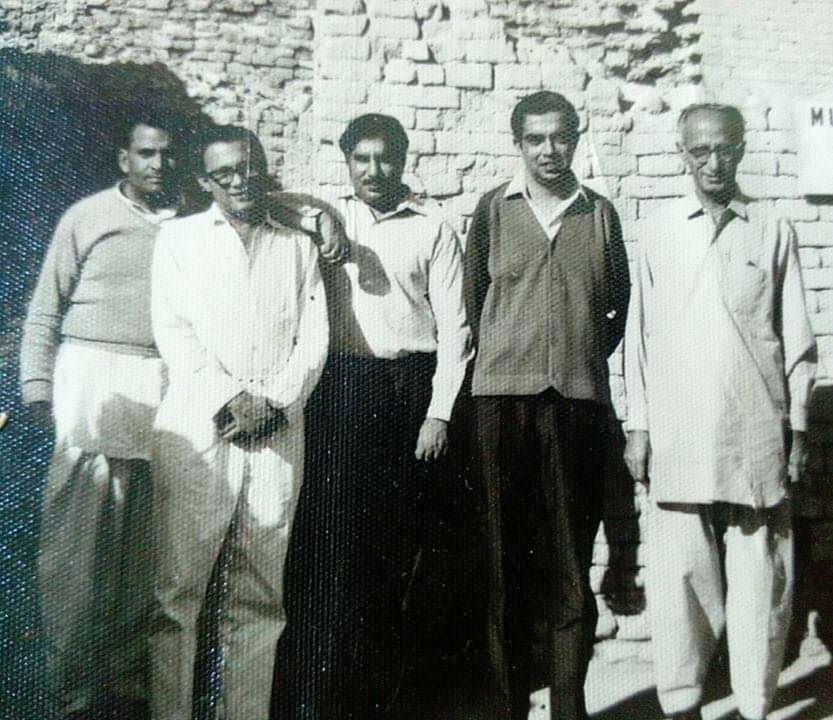
At this critical juncture the voices of humanist poets like Tanveer Abbasi are vital towards steadying our bearings in the storm
By Rinku Dutta
Whose corpse is this on the battlefield?
Hee kehnjo lash aa jang jey maidan ma.n*?
 As the news media inundates our screens with a deluge of images of lifeless bodies in the deadly wars raging in the world, the late Tanveer Abbasi’s poem hammers the questions each corpse poses for humanity: Whose corpse is this on the battlefield?
As the news media inundates our screens with a deluge of images of lifeless bodies in the deadly wars raging in the world, the late Tanveer Abbasi’s poem hammers the questions each corpse poses for humanity: Whose corpse is this on the battlefield?
Which side had more power?
Which, less?
Who bled more?
Who, less?
Who bore severe damages?
Who, fewer?
Who suffered heavy wounds?
Whose were lighter?
Who became bloated with hubris?
And who had to bow their head?
On whom rained more bombs?
And whose houses got razed?
On whose side more children were orphaned?
On whose side was the merciful god?
On which side there were fewer fires burning?
On which side there were lesser sighs?
On which side there was less pain?
And on which side less helplessness?
Whose corpse is on this battlefield?
Has his side won?
Or have they lost?
Has he become a martyr?
Or has he been dumped in hell?
Who was showered with blessings?
And who with curses?
No matter whether he has won or lost
This is my dead body
This is your corpse
It isn’t he who has won or lost
It’s you and I who have been defeated
Humanity has been defeated
And head-bowed stands Mercy
While political concerns were often reflected in his works, Tanveer is celebrated as ‘a poet of love’. He is revered as a Universalist and an uncompromising humanist

It is 24 years since Tanveer Abbasi’s passing on Nov 25, 1999, in Islamabad. Had he been alive Tanveer would have stepped into his 90th year on Dec 7 2023. Born as Noor Nabi Abbasi, a younger brother of the late irrigation and water expert A.N.G. Abbasi, he adopted the takhallus Tanveer as he evolved into an influential poet and literary figure. His compatriots in the Sindhi Adabi Sangat were stalwarts like Ibrahim Joyo, Shaikh Ayaz, Jamal Abro, Imdad Husaini, Ayaz Gul, Amar Jaleel, and Maulana Girami. Tanveer’s creative legacy includes the books Saajan Su.nhe Surth, Ragoon Thiyoon Rabbab, Hiye Dharti, Barira Bol, Jo Tanveer Chawe, Sij Tiria Heth, Doriya Doriya Deh and Je Mariya Na Maut.
A staunch non-conformist, Tanveer protested against the One Unit Scheme and also participated in the Movement for the Restoration of Democracy (MRD). One of his poems that express his feelings against oppression is Jeeu Jhore.n Disaa.n.
Let me put some strain on my life
And see what happens
Let me play my chang (mouth harp)
And see what tune emerges
When I kept my feelings to myself
Nothing happened
Let me share them with you
Let’s see what happens then
When I pleaded for my life
My chang (my instrument, my voice) was taken away**
Let me risk my life
Let’s see what happens
**Tanveer was jailed for his participation in the MRD.

While political concerns were often reflected in his works, Tanveer is celebrated as ‘a poet of love’. He is revered as a Universalist and an uncompromising humanist.
Tanveer urges of every person:
Paras thee.n tu.n pehri
Poye chhue dis kedhi aas
Lohe-lohe me.n sone thienji
Aahe kedhi pyaas
First become a paras (a mythical alchemist’s touchstone that changes base metals to gold)
Then discover by your touch
How every piece of iron
Thirsts to transmute to gold
(How every imperfect human being thirsts for perfection)
Renowned Sufi singer Abida Parveen has sung and popularized some of Tanveer’s tender love poems like Aao asaa.n wat weho (Come sit with me). Tanveer asks:
Nihu.n nibhayoon k.nie nihbayoon
Heya hayati thori bhayoon
Fulfill the promises of love-
How to do that?
This life is too short!
Tu.n pardehi ma.n pardehi
Jithe jithe tu.n ma wayhi
Kayoon rihanyoon pyar kahanyoon
Uho asa.n jo dehu aa
You, an alien in a foreign land
I, an alien in a foreign land
Wherever you and I have sat together
Where we chatted and shared stories of love
That is our land, my dear
Progressive, modernist, Tanveer conceived of love as a dance between independent equals:
Nach me.n daera gol gol
Rock roll rock roll
Rock rock roll roll
We dance round and round in circles
Ba.nh chelh me.n na wijh
Hik qadam parteh khan
Hik qadam par bharo
Hik qadam poeteh
Don’t put your arms around me
Take one step to the side
Take one step to the other
Take a step backwards
Ma.n wana tokhey tu.n
mo.nkhay wan
Muhnjay samoon jay hujai.n
Poe bhi mo.nkhey ghol ghol
You like me
I like you
Even though you are in front of me
Still keep searching for me
Nach mein daera gol gol
We dance round and round in circles
Rock roll rock roll
Rock rock roll roll
Tho.Do*** tho.Do fasilo aa zaroor
Tho.Do waijho tho.Do duur
A little bit of distance is necessary
A little closeness, a little distance
Tanveer was a minimalist. He mastered the Japanese haiku style of poetry. Some of his best works are these miniature gems of word-paintings. My favourite one is about the ochre-yellow Acacia blossoms of the babur trees of Sindh.
Chhanio babura jo boor
Peelo theewo charo
Vanyana poye bhi duur
Scattered babur blossoms
Yellow, the dirt track
Yet a long way to travel (to the destination)
Tanveer’s picturesque haiku is a reminder, like Robert Frost’s poem Stopping by Woods on a Snowy Evening, that we cannot afford to stop and enjoy nature’s beauty for we have ‘promises to keep’ and ‘miles to go’ before we sleep, and miles to go before we sleep.
The world is going through a tremendous upheaval where the value systems that upheld civilizations are crumbling. At this critical juncture the voices of humanist poets like Tanveer Abbasi are vital towards steadying our bearings in the storm.
*.n is to designate the nasal pronunciation
***.D is to designate the sound in the word ‘tho.Dii’ (little, few)
_____________________
 Rinku Dutta lives at the foothills of the Dhauladhar Range of the Lesser Himalayas in India. She has been a scientist and educator, occasionally writing about her experiences. ‘Exploring the Roots of Harmony: India and Pakistan Conflict Transformation’ is a monograph of a selection of her essays that is the outcome of a Scholar of Peace Media Fellowship that she received from WISCOMP (Women in Security Conflict Management and Peace, Foundation for Universal Responsibility of his Holiness the Dalai Lama, India). She won the Scientific Indian Science Fiction Short Story Contest (2008) for her story Aski’s Choice. Her poem ‘Monsoon Rain’ won 3rd Place in the SMS Poetry Contest, Kala Ghoda Arts Festival, Bombay (2006). Her recent poems were published in The Friday Times (Two Poems For Gaza). Her works have been published in journals like Himal Southasian, DesiLit, Newsline, and Hindustan Times. Rinku Dutta holds a PhD degree in Molecular Biology and Biochemistry jointly from Rutgers University and The Robert Wood Johnson Medical School, New Jersey.
Rinku Dutta lives at the foothills of the Dhauladhar Range of the Lesser Himalayas in India. She has been a scientist and educator, occasionally writing about her experiences. ‘Exploring the Roots of Harmony: India and Pakistan Conflict Transformation’ is a monograph of a selection of her essays that is the outcome of a Scholar of Peace Media Fellowship that she received from WISCOMP (Women in Security Conflict Management and Peace, Foundation for Universal Responsibility of his Holiness the Dalai Lama, India). She won the Scientific Indian Science Fiction Short Story Contest (2008) for her story Aski’s Choice. Her poem ‘Monsoon Rain’ won 3rd Place in the SMS Poetry Contest, Kala Ghoda Arts Festival, Bombay (2006). Her recent poems were published in The Friday Times (Two Poems For Gaza). Her works have been published in journals like Himal Southasian, DesiLit, Newsline, and Hindustan Times. Rinku Dutta holds a PhD degree in Molecular Biology and Biochemistry jointly from Rutgers University and The Robert Wood Johnson Medical School, New Jersey.
 Sindhi poems and their translations quoted in the text are by Dr. Sarmad Abbasi
Sindhi poems and their translations quoted in the text are by Dr. Sarmad Abbasi